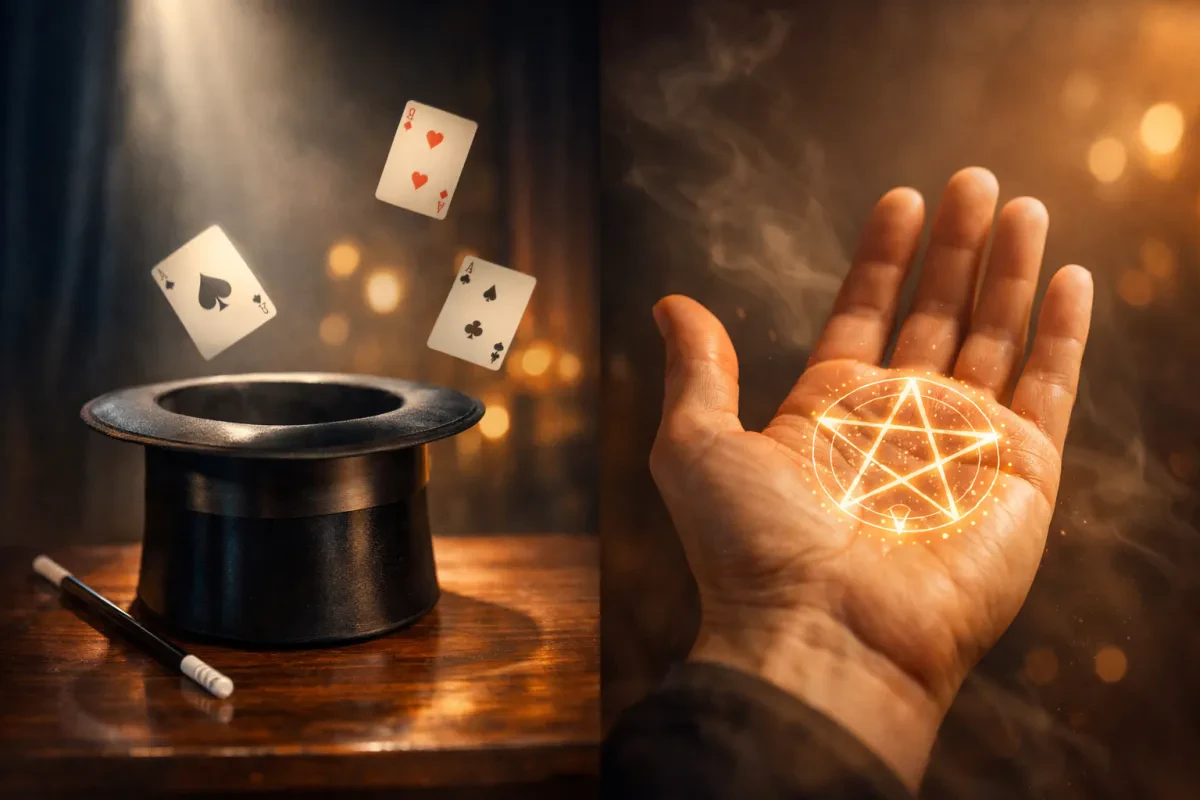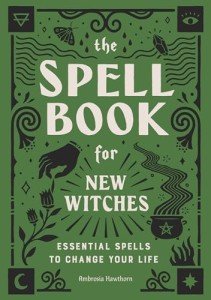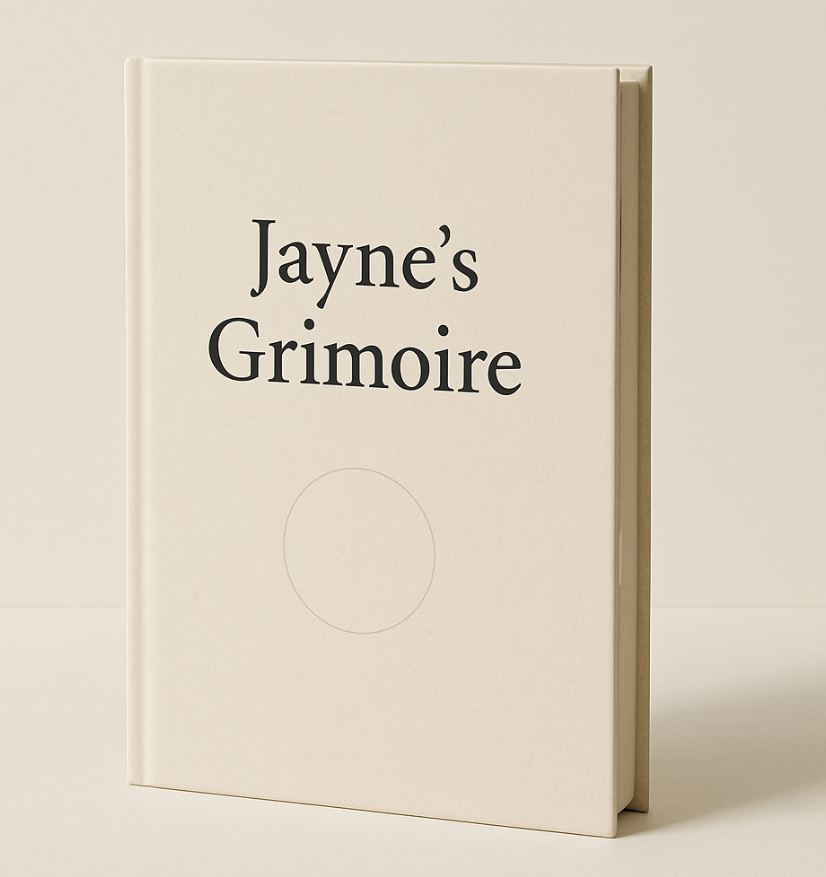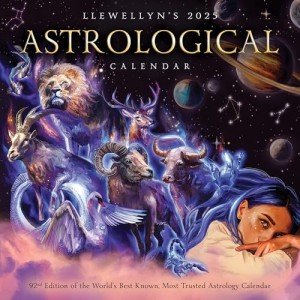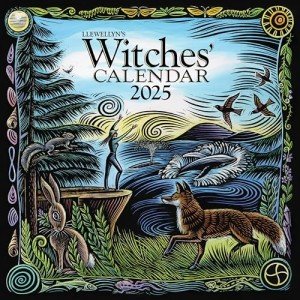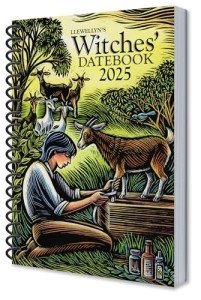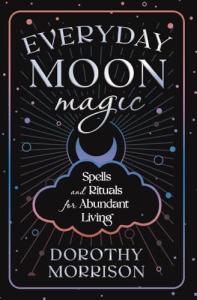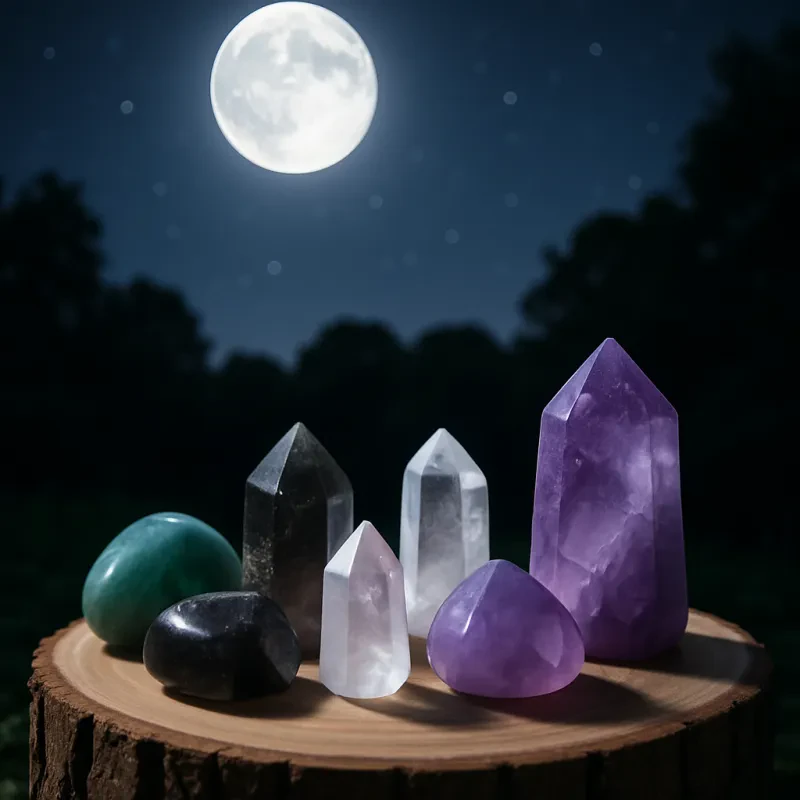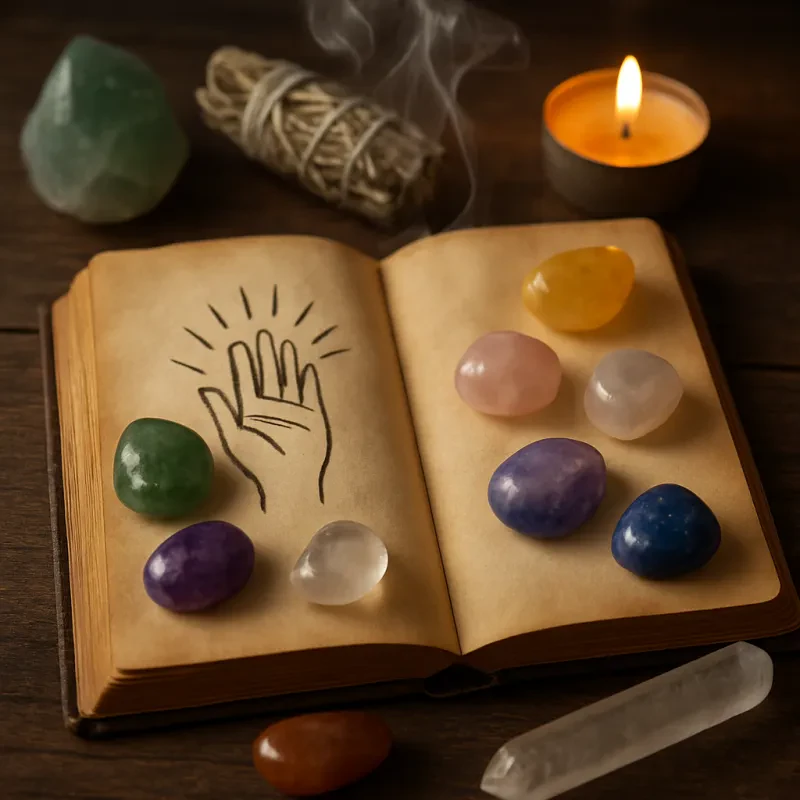Magick vs Magic: Why One Letter Changes Everything
At first glance, the difference between magick and magic looks almost silly — a single letter, a stylised spelling, an old-fashioned quirk.
And yet… for anyone who has ever stood at the edge of the mystical arts — curious, cautious, quietly hungry for something real — that single letter can feel like a doorway.
Because language shapes expectation.
When we read the word magic, many of us picture performance: a magician’s grin, a hidden coin, a flourish, a reveal. It’s wonder we watch from the outside.
When we read the word magick, the atmosphere changes. The expectation shifts inward — toward intention, participation, and personal responsibility. Not spectacle. Not fantasy. Something more private. Something lived.
This distinction isn’t elitism. It’s clarity.
Magick doesn’t ask to be believed blindly. It asks to be engaged with consciously.
The Shared Roots of Magick and Magic
Both “magick” and “magic” trace their roots back through the ancient world.
The word magic is commonly traced to the Greek mageia, associated with the Magi — priest-scholars of ancient Persia connected with astrology, ritual, and sacred knowledge (see: Encyclopaedia Britannica: Magi).
In those early contexts, “magic” was not a party trick. It was an attempt to understand the unseen structure beneath life: time, destiny, the movement of stars, the language of symbols, the mystery of cause and effect.
In ancient Egypt, Babylon, and Greece, the mystical was not separated from daily life. Healing, prayer, ritual, and symbolism often lived side-by-side with what we’d now call early science. Human beings have always looked for meaning. They have always wanted to understand why certain moments feel fated — and why others feel like lessons disguised as loss.
The separation between the mystical and the mundane came much later.
Essential Spells for New Witches: Transform Your Life
Discover the power within and change your reality with our collection of essential spells for new witches: transform your life
Product information
SEK 152.08 SEK 89.42
Product Review Score
4.35 out of 5 stars
115 reviewsProduct links
When Magic Became Entertainment
Over time — through shifting empires, religious movements, and cultural fear — spiritual practices were increasingly pushed toward the margins.
In many monotheistic contexts, mystical work outside approved religious structures became suspicious. The rise of witch trials and persecution didn’t just erase lives; it also buried knowledge. What was once ancestral wisdom was reframed as forbidden.
But wonder doesn’t disappear just because it becomes inconvenient.
As the centuries rolled forward, particularly into the Enlightenment and modern era, the word “magic” began to carry a different flavour. Public fascination with mystery remained — but it transformed into spectacle: illusion, misdirection, performance.
By the 18th and 19th centuries, “magic” in popular culture increasingly meant something you watched — a stage, a curtain, a grand reveal. A kind of controlled astonishment where everyone agreed to be fooled for the joy of it.
Magic became something that happened to you.
Its older spiritual context didn’t vanish — but it faded into the background, surviving in folklore, occult lineages, and private practice.
Why “Magick” Was Reclaimed
The spelling magick didn’t appear by accident. It was reclaimed deliberately, most famously by Aleister Crowley in the early 20th century.
Crowley did not invent mystical practice — magick existed long before his time — but he did formalise a distinction many practitioners already felt. By adding a “k,” he separated spiritual and ceremonial work from theatrical illusion.
He defined magick as:
“The Science and Art of causing change to occur in conformity with Will.”
You don’t have to follow Crowley’s worldview to understand what that definition tries to protect: the idea that spiritual practice is not entertainment. It is intentional. It is participatory. It asks something of you.
The “k” became a signal — not of superiority, but of intent.
Magick was something you did, not something you watched.
Magick as Inner Transformation
At its heart, magick is concerned with transformation — not always in the dramatic, lightning-strike ways people imagine, but in the slow, almost quiet shifts that change the shape of a life.
Magick often asks: Who are you becoming?
Practitioners commonly work with ritual, symbolism, intention, and energetic states — but the deeper point is not the tools. The deeper point is the alignment created by the work.
If you’d like to go deeper into how symbols become a living language in ritual, start here: witchcraft symbols and their meanings.
Magick can involve:
- Symbolic ritual and focused intention
- Personal will and awareness
- Cycles of nature, seasons, and time
- Emotional states as energetic gateways
- Personal responsibility for what is invoked and released
This is why people who practice magick often speak differently about “results.” They may still desire outcomes — love, protection, healing, abundance — but they also learn to pay attention to what changes inside them as they work.
In this sense, magick is closer to prayer, meditation, and ritual psychology than to illusion.
How People Experience Magick vs Magic in Real Life
One of the clearest ways to understand the difference between magick and magic is through lived experience.
Most people don’t wake up one morning and decide, “Today I’ll become a practitioner of magick.” They arrive there indirectly — through curiosity, grief, frustration, healing, or a quiet sense that surface-level explanations are no longer enough.
Someone might begin with tarot out of interest, only to discover the cards are reflecting inner patterns rather than simply predicting events. Another might light a candle during a difficult season and realise that the ritual itself — the stillness, the intention, the pause — creates more clarity than the outcome.
These moments mark a shift.
Magic is something that happens to you.
Magick is something that happens with you.
Over time, practitioners often describe magick less as “doing spells” and more as learning to listen: to cycles, emotions, symbols, synchronicities, and inner responses. Not everything becomes a sign — but more of life becomes meaningful.
This is why many experienced practitioners eventually stop chasing “bigger” rituals and start refining awareness.
The Cultural Weight of the Word “Magick”
For some, the word “magick” carries a strange tenderness — a sense of homecoming.
It reconnects modern spiritual practice with older traditions that were never meant to be spectacles. In many pre-industrial societies, ritual wasn’t performed for applause. It was woven into seasonal cycles, rites of passage, communal protection, and healing.
And if you’re drawn to the older practice of recording spells, correspondences, and ritual notes, you’ll love our guide to Book of Shadows spells and how they’re traditionally stored and worked with.
The spelling “magick” quietly honours that lineage.
It also acts as a boundary. In online spaces especially — where fantasy, aesthetics, and spirituality often blur — the “k” helps practitioners signal seriousness without hostility. It says: this is inner work, not roleplay.
That boundary protects both the practice and the practitioner.
And it’s worth noting: not all sincere practitioners use the “k.” Some traditions prefer “magic” and still practice ethically and deeply. The spelling is not a law. It’s a clue.
So Where Does “Magic” Still Belong?
The word “magic” now lives in multiple worlds at once.
It can refer to:
- Stage illusion and performance
- Fantasy storytelling and myth
- Everyday wonder (“that moment felt magical”)
- Some modern spiritual practices (depending on tradition)
Magic is broad. Accessible. Fluid.
Magick, by contrast, is narrow, deliberate, and inwardly oriented.
Neither is wrong. But they are not the same.
A Visual Metaphor: Hat vs Hand
The difference between magic and magick is often captured visually — and once you see it, you can’t really unsee it.
Magic is symbolised by the magician’s hat: concealment, surprise, illusion, a reveal created through technique.
Magick is symbolised by the open hand marked with sacred geometry: awareness, intention, participation, a shift created through alignment.
One hides the method. The other reveals the self.
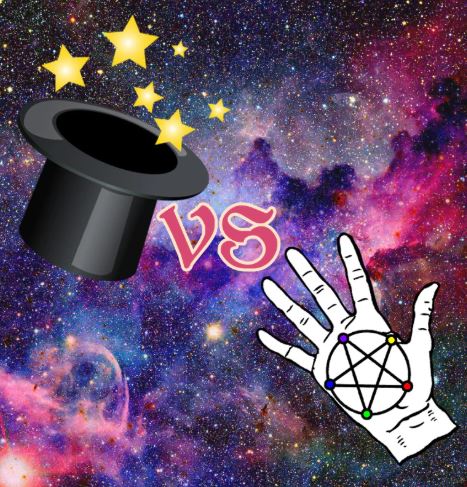
Why People Still Search for “Magick vs Magic”
The fact that people keep searching for the difference between magick and magic tells us something important.
This isn’t a dead curiosity question. It’s a question of orientation.
In a world saturated with manifestation trends, aesthetic spirituality, and instant answers, many people are quietly asking something deeper:
Am I looking for entertainment… or am I looking for understanding?
This search often arises during transitional moments — after burnout, heartbreak, disillusionment, or simply the feeling that surface-level explanations no longer satisfy.
Understanding the difference between magick and magic helps a seeker choose their next step consciously.
And that is powerful, because the path you choose shapes the experiences you interpret, the rituals you trust, and the kind of transformation you’re actually available for.
Responsibility: The Quiet Core of Magick
One of the most overlooked aspects of magick is responsibility.
Unlike magic-as-entertainment, magick does not end when the curtain falls. There is no applause that wipes the slate clean. Magick asks the practitioner to reflect on intention, impact, and accountability.
This is why ethical discussions are common in serious traditions — not because magick is “dangerous” in a cartoonish way, but because it is participatory.
When intention matters, awareness matters.
For many, the ethical framework becomes more important than ritual itself. It shapes how magick is approached — slowly, thoughtfully, and with respect for both self and others.
A Small Practitioner Reflection (Jayne’s Note)
I’ve noticed something over the years: the longer someone walks with magick, the less they seem to need to prove anything.
At some point, the question shifts. It becomes less about what magick can give you… and more about what it is quietly teaching you.
Sometimes that teaching is patience. Sometimes it’s discernment. Sometimes it’s the gentle realisation that what you wanted wasn’t wrong — it just wasn’t aligned.
And if that feels oddly comforting, you’re probably closer to “magick” than you think.
Magick, Wealth, and Inner Alignment
One place where magickal thinking often intersects with modern life is abundance and prosperity.
True magick does not bypass effort — it reframes relationship with intention, belief, and action. It asks: What do you believe is possible for you? And just as importantly: What do you secretly believe you don’t deserve?
Tools that explore subconscious patterns around money and worth can sometimes act as mirrors rather than spells.
When approached thoughtfully, supportive programs like this can complement inner work — not replace it. They can help identify patterns that block consistency, confidence, or follow-through.
That isn’t a promise of instant wealth. It’s an invitation to awareness — and awareness is where magick actually begins.
Final Reflections on Magick vs Magic
The difference between magick and magic is not about spelling.
It is about orientation.
Magic seeks to amaze.
Magick seeks to align.
Magic entertains the eyes.
Magick engages the will.
When you understand this distinction, you begin to see both words clearly — and you can choose consciously which path you are walking.
And that awareness, in itself, is magick.
